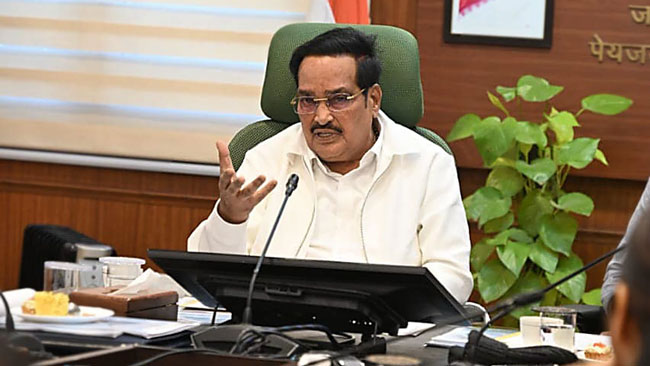Desk: In a historic move on April 24, India suspended the 1960 Indus Waters Treaty with Pakistan, citing heightened security concerns following a terrorist attack in Pahalgam, Jammu and Kashmir. As part of this decision, India has halted the flow of the Chenab River toward Pakistan, significantly impacting Pakistan’s Punjab province. Union Jal Shakti Minister C.R. Patil stated that the government is working on a strategy to ensure that not a single drop of water from India flows into Pakistan.
What’s the full story?
On April 24, the Indian government officially announced the suspension of the Indus Waters Treaty. The treaty governs the distribution of the Indus River and its tributaries—such as the Chenab, Jhelum, and Sutlej—between India and Pakistan. According to the treaty, the waters of the Chenab and other western rivers were primarily allocated to Pakistan, with India permitted limited usage. However, the terrorist attack in Pahalgam prompted the Indian government to take this stern action. The government claims that Pakistan’s continued support for terrorism and cross-border infiltration has rendered the treaty contrary to India’s national interests.
Flow of Chenab River halted
India has started controlling the flow of the Chenab River through the Baglihar Hydroelectric Project. As a result, residents near the Marala Headworks in Sialkot, Punjab, reported a significant decrease in the river’s water level. The Chenab River is vital for agriculture and drinking water supply in Pakistan.
“Not a drop of water will flow to Pakistan”: Patil
Following a high-level meeting chaired by Union Home Minister Amit Shah, Jal Shakti Minister C.R. Patil declared on Friday that the government is crafting a strategy to ensure no water from India reaches Pakistan. Patil said that Prime Minister Narendra Modi had issued several directives, and the meeting was convened to ensure their implementation. Shah offered suggestions for effective execution, and Patil emphasized, “We will ensure that not a single drop of water from India reaches Pakistan.”
The meeting followed the deadly terrorist attack in Pahalgam on Tuesday, which killed 26 people, mostly tourists. Later, in a post on ‘X’ (formerly Twitter), Patil wrote, “The historic decision taken by the Modi government regarding the Indus Waters Treaty is fully justified and in the national interest. We will ensure not a drop of Indus River water flows to Pakistan.”
Sources revealed that the government is working on a long-term implementation strategy, with senior officials from several ministries participating in the meeting. India has already informed Pakistan of its decision to suspend the treaty, stating that Pakistan’s continuous use of terrorism against Jammu and Kashmir violates the treaty’s provisions. Patil added that India has sent a strong message that it will not tolerate terrorism under any circumstances.
Pakistan’s Response
Pakistan strongly condemned India’s move, calling it a violation of international law. In a statement, the Pakistani Foreign Ministry said, “India’s decision is a blatant breach of the Indus Waters Treaty and will escalate tensions between the two nations. We will raise this issue on international platforms.”
Background of the Indus Waters Treaty
The Indus Waters Treaty was signed in 1960 between India and Pakistan, with the World Bank as a mediator. It is considered a crucial agreement governing water sharing between the two nations. According to the treaty, the eastern rivers (Sutlej, Beas, and Ravi) are allocated primarily to India, while the western rivers (Indus, Jhelum, and Chenab) are meant mainly for Pakistan. India is allowed limited use of the western rivers for hydroelectric projects. Over recent years, India has initiated several such projects in Jammu and Kashmir, which have been contested by Pakistan. However, India maintains that all its projects are within treaty limits.
India’s Rationale
The Indian government argues that suspending the Indus Waters Treaty was necessary from the standpoint of national security and self-reliance. The government has also hinted at using the waters of Chenab and other rivers for irrigation, power generation, and drinking water supply in Jammu and Kashmir and other Indian states.
Local leaders in Jammu and Kashmir have welcomed the move. A senior official said, “The Chenab River is a lifeline for us. Its water will now be used for our farmers and people, not for those who support terrorism.”
Would you like this turned into a formal news article or press release format?




